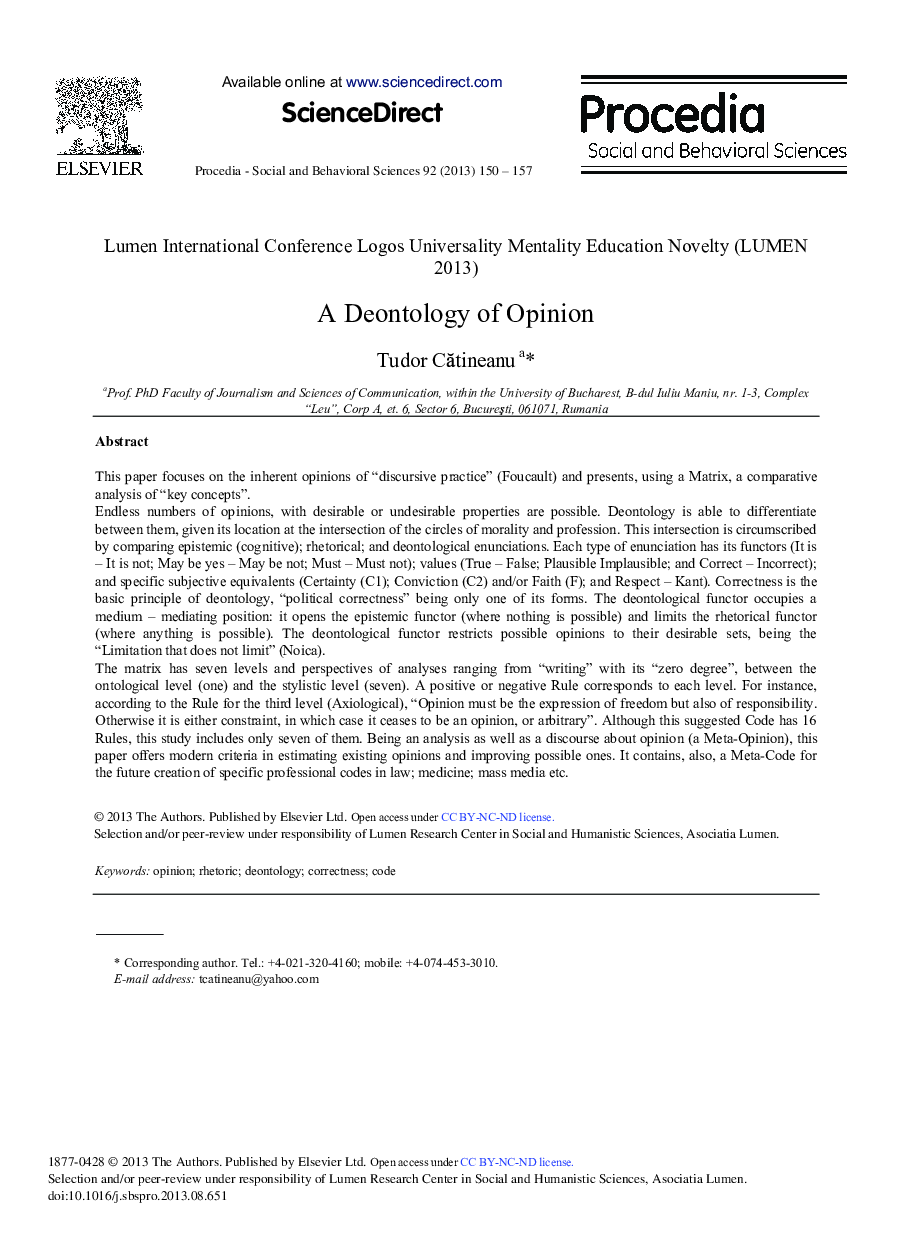| کد مقاله | کد نشریه | سال انتشار | مقاله انگلیسی | نسخه تمام متن |
|---|---|---|---|---|
| 1117907 | 1488467 | 2013 | 8 صفحه PDF | دانلود رایگان |

This paper focuses on the inherent opinions of “discursive practice” (Foucault) and presents, using a Matrix, a comparative analysis of “key concepts”.Endless numbers of opinions, with desirable or undesirable properties are possible. Deontology is able to differentiate between them, given its location at the intersection of the circles of morality and profession. This intersection is circumscribed by comparing epistemic (cognitive); rhetorical; and deontological enunciations. Each type of enunciation has its functors (It is – It is not; May be yes – May be not; Must – Must not); values (True – False; Plausible Implausible; and Correct – Incorrect); and specific subjective equivalents (Certainty (C1); Conviction (C2) and/or Faith (F); and Respect – Kant). Correctness is the basic principle of deontology, “political correctness” being only one of its forms. The deontological functor occupies a medium – mediating position: it opens the epistemic functor (where nothing is possible) and limits the rhetorical functor (where anything is possible). The deontological functor restricts possible opinions to their desirable sets, being the “Limitation that does not limit” (Noica).The matrix has seven levels and perspectives of analyses ranging from “writing” with its “zero degree”, between the ontological level (one) and the stylistic level (seven). A positive or negative Rule corresponds to each level. For instance, according to the Rule for the third level (Axiological), “Opinion must be the expression of freedom but also of responsibility. Otherwise it is either constraint, in which case it ceases to be an opinion, or arbitrary”. Although this suggested Code has 16 Rules, this study includes only seven of them. Being an analysis as well as a discourse about opinion (a Meta-Opinion), this paper offers modern criteria in estimating existing opinions and improving possible ones. It contains, also, a Meta-Code for the future creation of specific professional codes in law; medicine; mass media etc.
Journal: Procedia - Social and Behavioral Sciences - Volume 92, 10 October 2013, Pages 150-157